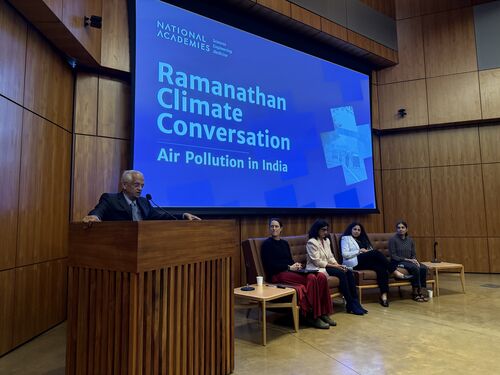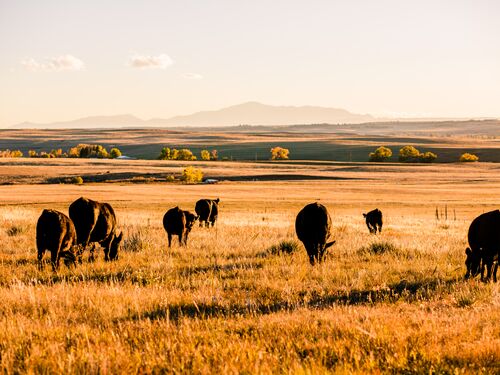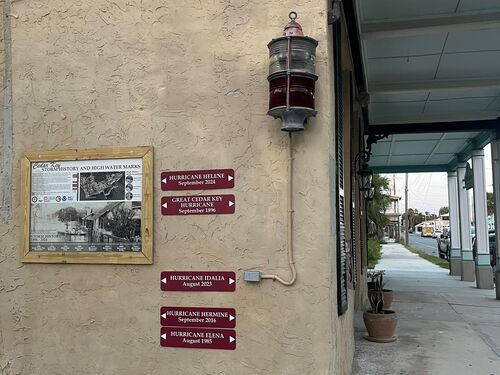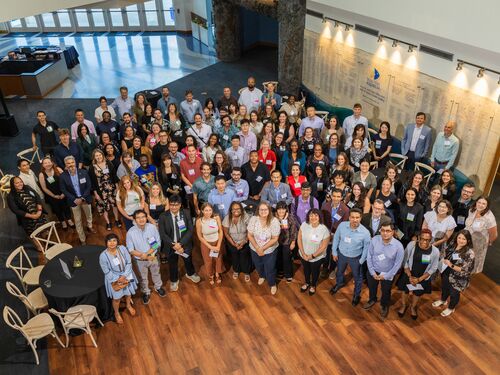Bridging Ghana and the Gulf: How One ECRF Fellow Is Tackling Urban Flooding
Program News
By Stephanie Miceli
Last update June 17, 2021
When he was in high school, Kwame Owusu-Daaku, an alum of the Gulf Research Program’s Early-Career Research Fellowship (ECRF), watched a documentary about the life of the late Supreme Court Justice Thurgood Marshall. Best known for his civil rights legacy, it is often overlooked that Marshall was also a friend of the environment who championed air quality measures, Black land ownership, and equal access to neighborhood green spaces.
At the time that Owusu-Daaku watched the documentary, he had aspirations of becoming a lawyer. Little did he know his career would take him to Pensacola Bay in West Florida — which faces many of the same flooding hazards as his native Ghana
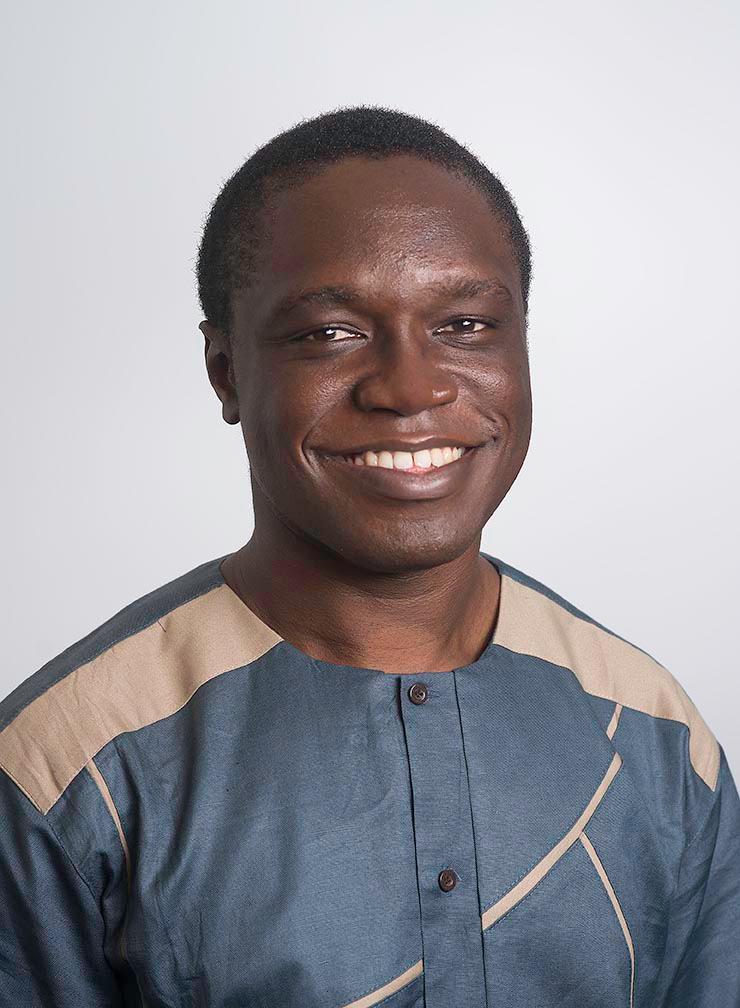
In Ghana, some of the causes of flooding include urbanization and slum development, rainfall intensity and poor stormwater infrastructure, and the impacts of climate change. Those same factors have also led to flooding in Pensacola Bay. But it wasn’t until he arrived in the U.S. that Owusu-Daaku fully appreciated how race and class can dictate who is able to prepare for a flood, evacuate, and recover — and who isn’t. Now a professor at the University of West Florida (UWF), he has seen students and neighbors lose everything to flooding multiple times, and they stand to lose it all again any time there is significant rainfall.
“Not all segments of a population have the ability to respond to a disaster,” he said during a recent Gulf Research Program Emerging ScienTalks webinar. “People without a car may not be able to evacuate upon a flood warning. Older people and children may also have a harder time than others. And people with lower education levels may feel intimidated at the thought of participating in a local flood planning process.”
Today, a major focus of Owusu-Daaku’s research is climate resilience — which he describes as ensuring people and communities have the information and tools to respond to environmental challenges. While he’s not in the courtroom advocating for environmental protections, as he once envisioned, he believes that sound policy should be based on solid research, which is where his work comes in.
“When I think of Thurgood Marshall — he really went from being active ‘boots on the ground’ to making precedent rulings,” said Owusu-Daaku. “The onus shouldn’t solely be on the community to rebuild every time there’s a flood or another natural disaster, or to deal with the health effects of toxic pollution from a paper mill or a plastic plant. We need research that informs infrastructure and policy measures — for example, zoning laws — to minimize such damage in the first place.”
Hurricanes and Housing Needs: Leading University-Involved Research
During his ECRF fellowship, one of Owusu-Daaku’s most significant research contributions was working on an affordable housing assessment for the government of Calhoun County, Florida, following Hurricane Michael in 2018.
The experience was personal for several of his students. Some of them came from towns that were hardest hit by the hurricane. Many residents, especially those who are older or low-income, could not afford to rebuild or repair their homes, which had been severely damaged from hurricane-induced flooding and flying debris. The county planned to use its state-allocated funds to purchase land and build affordable housing, but they first needed to hear directly from community members about their needs.
Owusu-Daaku saw this as a valuable opportunity for the university to assist underserved communities in disaster recovery.
“University-involved recovery, as we call it, gives students a chance to gain technical experience, and it also allows faculty to advance their research,” he explained.
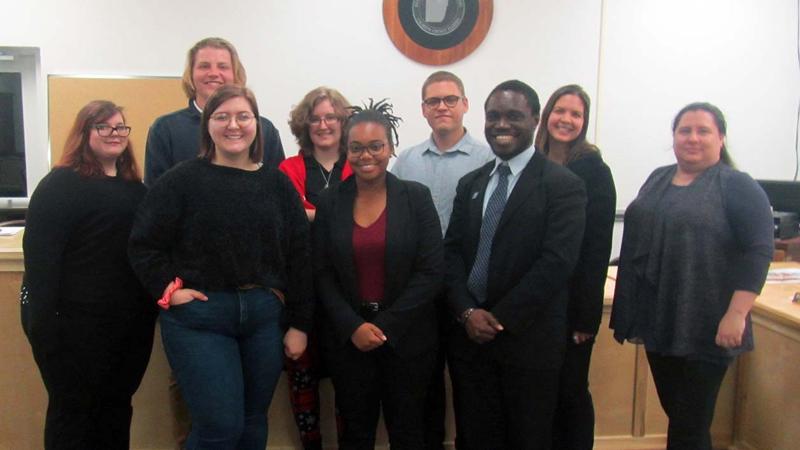
He and his team of UWF students looked at the county’s current housing needs and its anticipated needs in the next 10 to 20 years; the needs of those with home insurance versus those without it; and recommendations for future construction to make homes storm-resilient. They also created a best practices document for initially assessing a site for development or redevelopment, so community members could continue to play an active role in disaster recovery and preparedness.
“I’m always thinking about, ‘How can we use the collective power of community to mitigate disasters, to make things better, to bounce back?’ Science shouldn’t just be the domain of people with multiple degrees,” he said. “Citizens can get an insight into the issues in their region and use it to advocate for themselves.”
Educating the Science Educators
Owusu-Daaku admits he’s a bit impatient, which is why he enjoys teaching just as much as research — whether he’s traveling with students in a van for community meetings in hurricane-struck counties, or explaining flood resilience to middle school students.
“It might take years for my research to bear results. But with teaching, you can see the light bulb go off when a student understands something new,” he says.
He credits one of his ECRF mentors, a science educator, for igniting his interest in the “multiplier effect” of providing support and professional development to science teachers, so they can teach science in more engaging, accessible ways — and ultimately, encourage more students to enter STEM fields. Events like the Emerging ScienTalks series have provided a forum to reach middle and high school science teachers.
Having high-quality mentors through the fellowship also helped him hone his story as a researcher, he added.
“For a long time, I was trying to bridge the connection between what I’m doing in Ghana and the Gulf. It took a few tries. Applying and going through this program helped me make that connection, and tell a coherent story about my work.”
Related Resources
More like this
Discover
Events
Right Now & Next Up
Stay in the loop with can’t-miss sessions, live events, and activities happening over the next two days.
NAS Building Guided Tours Available!
Participate in a one-hour guided tour of the historic National Academy of Sciences building, highlighting its distinctive architecture, renowned artwork, and the intersection of art, science, and culture.
